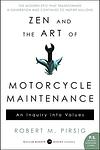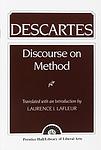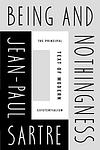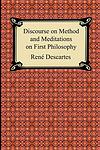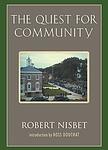The Greatest American, French "Philosophy" Books of All Time
Click to learn how this list is calculated.
This list represents a comprehensive and trusted collection of the greatest books. Developed through a specialized algorithm, it brings together 305 'best of' book lists to form a definitive guide to the world's most acclaimed books. For those interested in how these books are chosen, additional details can be found on the rankings page.
Genres
Philosophy is a category of books that explores fundamental questions about existence, knowledge, ethics, and reality. It encompasses a wide range of topics, from the nature of consciousness and the meaning of life to the principles of logic and the foundations of morality. Philosophy books often challenge readers to think deeply and critically about the world around them, and to consider different perspectives and arguments in order to arrive at their own conclusions.
Countries
Date Range
Reading Statistics
Click the button below to see how many of these books you've read!
Download
If you're interested in downloading this list as a CSV file for use in a spreadsheet application, you can easily do so by clicking the button below. Please note that to ensure a manageable file size and faster download, the CSV will include details for only the first 500 books.
Download-
1. Essays by Michel de Montaigne
This collection of essays explores a wide range of topics such as solitude, cannibals, the power of the imagination, the education of children, and the nature of friendship. The author employs a unique and personal approach to philosophy, using anecdotes and personal reflections to illustrate his points. The essays provide a profound insight into human nature and condition, and are considered a significant contribution to both literature and philosophy.
The 111th Greatest Book of All Time -
2. The Second Sex by Simone de Beauvoir
This influential work explores the treatment and perception of women throughout history, arguing that women have been repressed and defined only in relation to men. The author presents a detailed analysis of women's roles in society, family, work, and in the creation of their own identities. She discusses the concept of 'the other' and how this has been used to suppress women, while also examining the biological, psychological, and societal impacts of this oppression. The book is a seminal text in feminist theory, challenging traditional notions of femininity and calling for equality and freedom for women.
The 121st Greatest Book of All Time -
3. The Structure of Scientific Revolutions by Thomas Kuhn
This influential book examines the history of science, focusing on the process of scientific revolutions. The author argues that scientific progress is not a linear, continuous accumulation of knowledge, but rather a series of peaceful interludes punctuated by intellectually violent revolutions. During these revolutions, known as paradigm shifts, the old scientific worldview is replaced by a new one. The book also popularized the term 'paradigm shift' and challenged the previously accepted view of science as a steadily progressive discipline.
The 181st Greatest Book of All Time -
4. Democracy in America by Alexis de Tocqueville
This influential book offers an in-depth analysis of the strengths and weaknesses of 19th century American democracy. The author, a French political thinker, provides a detailed examination of the democratic process and its impact on society, politics, and the economy. The work highlights the importance of civil society, local institutions, and the spirit of equality in ensuring the stability of democracy. It also delves into the dangers of majority tyranny, the potential for democratic despotism, and the critical role of religion and morality in sustaining a democratic nation.
The 241st Greatest Book of All Time -
5. Nausea by Jean Paul Sartre
The novel follows a historian living in a small French town, struggling with a strange and unsettling feeling of disgust and revulsion he calls 'nausea'. He grapples with the existential dread of his own existence and the meaningless of life, continually questioning his own perceptions and the nature of reality. As he navigates through his everyday life, he is plagued by his philosophical thoughts and the overwhelming sensation of nausea, leading him to a profound existential crisis.
The 257th Greatest Book of All Time -
6. The Confessions of Jean-Jacques Rousseau by Jean-Jacques Rousseau
"The Confessions of Jean-Jacques Rousseau" is an autobiographical work by a prominent philosopher of the Enlightenment era, who candidly shares his life story, from his humble beginnings in Geneva to his later years in exile. The book delves into his personal struggles, his intellectual journey, and his relationships, all while exploring his philosophical ideas on education, politics, and morality. The author's introspective narrative provides a unique perspective on his life and times, making it a seminal work in the history of autobiography.
The 314th Greatest Book of All Time -
7. Pensées by Blaise Pascal
"Pensées" is a collection of philosophical and theological thoughts and ideas by a renowned French mathematician and physicist. The book delves into various aspects of human existence, exploring the nature of faith, reason, and the human condition. It also presents arguments for the existence of God, including the famous wager argument. The book is known for its profound insights into the human experience and its exploration of the complexities of belief and doubt.
The 347th Greatest Book of All Time -
8. Zen and the Art of Motorcycle Maintenance by Robert M. Pirsig
The book is a philosophical novel that explores the protagonist's journey across the United States on a motorcycle with his son, during which he delves into questions about life, philosophy, and the nature of "Quality". The narrative is interspersed with flashbacks to the protagonist's life before the journey, including his time as a university professor and his struggle with mental illness. The book aims to reconcile the dichotomy between classical and romantic understandings of the world, ultimately arguing for a holistic approach that integrates both perspectives.
The 369th Greatest Book of All Time -
9. The Varieties of Religious Experience by William James
This book is an exploration of the diverse range of religious experiences, from the mainstream to the mystical. The author applies a psychological and philosophical approach, examining the individual, personal experiences of spirituality rather than organized religion. The book covers topics such as conversion, saintliness, and mysticism, and argues that religious experiences, rather than religious institutions, should be the primary focus of religious study.
The 410th Greatest Book of All Time -
10. The Social Contract by Jean-Jacques Rousseau
"The Social Contract" is a philosophical work that discusses the concepts of sovereignty and the social contract. The author argues that all men are born free, but everywhere they are in chains, suggesting that society and its rules are a form of enslavement. However, he also posits that a social contract, where individuals come together to form a collective or a society, is necessary for the preservation of their freedom. This contract allows for the creation of a sovereign that is made up of the collective and expresses the general will, which is always right and tends towards the public utility.
The 536th Greatest Book of All Time -
11. The Myth of Sisyphus by Albert Camus
This book is a philosophical essay that explores the concept of absurdity, and how individuals should respond to life's inherent meaninglessness. It posits that life is essentially absurd due to the conflict between our desire for understanding and the chaotic, indifferent universe. The author argues that the only proper response to this absurdity is to live life to its fullest, embracing and rebelling against the absurdity, rather than resorting to suicide or turning to religion or philosophy for false comfort. The story of Sisyphus, condemned to eternally roll a boulder up a hill only for it to roll back down, is used as a metaphor for the human condition.
The 585th Greatest Book of All Time -
12. Meditations on First Philosophy by Rene Descartes
"Meditations on First Philosophy" is a philosophical treatise that introduces the concept of radical doubt as a foundational element of knowledge. The book is known for the famous philosophical statement, "I think, therefore I am," which the author uses to establish the existence of the self as a necessary truth. The author also presents arguments for the existence of a benevolent God and the immortality of the soul, while examining the differences between the mind and the body, the nature of reality, and the limits of human understanding.
The 587th Greatest Book of All Time -
13. Being and Nothingness by Jean Paul Sartre
This philosophical work delves into the concept of existentialism and phenomenology, offering an in-depth analysis of human consciousness and existence. The author argues that we are all essentially free and responsible for our actions, and that we construct our own identities through our actions and interactions with others. The book also explores the idea of 'nothingness' and 'bad faith', suggesting that we often deny our freedom and hide from the responsibility of our actions, leading to a life of inauthenticity.
The 633rd Greatest Book of All Time -
14. Against Nature by J. K. Huysmans
The novel follows the life of an eccentric aristocrat who retreats from society to live in isolation, dedicating himself to the pursuit of excessive aestheticism. He surrounds himself with art, literature, and music, and indulges in sensual pleasures and extravagant interior decoration. The protagonist's obsession with artifice over nature and his quest for absolute individualism and self-gratification are explored, reflecting the decadent movement of the late 19th-century France.
The 724th Greatest Book of All Time -
15. The Essential Writings of Ralph Waldo Emerson by Ralph Waldo Emerson
This book is a comprehensive collection of works by a renowned American philosopher and poet. It includes his most influential essays, lectures, and poetry, providing readers with a deep insight into his thoughts on nature, self-reliance, love, friendship, freedom, and the importance of intellectual independence. The book serves as a guide to the author's transcendental philosophy and his belief in individualism, nonconformity, and the inherent goodness of man and nature.
The 733rd Greatest Book of All Time -
16. Words by Jean Paul Sartre
This book is a memoir that explores the author's early life and development as an intellectual. He reflects on his childhood experiences in a non-linear narrative, detailing his relationship with his mother and grandfather, his early education, and his evolving understanding of language and literature. The author also delves into his philosophical ideas, examining the concept of existentialism and the role of the individual in society. The book serves as a profound exploration of the power of words and the impact of childhood experiences on adult life.
The 889th Greatest Book of All Time -
17. Civil Disobedience by Henry David Thoreau
The book is a seminal work on the philosophy of non-violent resistance, advocating for individual freedom and the refusal to obey unjust laws. The author argues that individuals have a duty to prioritize their conscience over the dictates of laws and that governments are inherently prone to corruption and should not command absolute allegiance from their citizens. The book has greatly influenced many nonviolent resistance movements around the world, including those led by Gandhi and Martin Luther King Jr.
The 1037th Greatest Book of All Time -
18. Discipline and Punish by Michel Foucault
This book delves into the historical evolution of the penal system, examining how Western societies have transitioned from a regime of violent, public physical punishment to a more subtle form of surveillance and control. It introduces the concept of the "panopticon," a metaphor for modern disciplinary societies that exercise power through observation and normalization rather than through overt physical coercion. The work explores the relationship between power, knowledge, and social control, arguing that disciplinary mechanisms are embedded in various institutions, such as schools, hospitals, and prisons, shaping individuals and maintaining order in society.
The 1065th Greatest Book of All Time -
19. A Theory of Justice by John Rawls
This book presents a seminal work in modern political philosophy, where the author proposes a model of justice that, despite being egalitarian, respects individual rights. The author's "veil of ignorance" thought experiment, which suggests designing society from an original position where no one knows their future place in society, has been particularly influential. The author argues that this would lead to a system where each individual is assured basic liberties and socio-economic inequalities are only allowed if they benefit the least advantaged members of society.
The 1131st Greatest Book of All Time -
20. The Theory of the Leisure Class by Thorstein Veblen
This book is a socio-economic critique of American consumerism and the upper class, written in the late 19th century. The author argues that the wealthy engage in conspicuous consumption and leisure to display their wealth and maintain their social status. He introduces the concept of "pecuniary emulation," suggesting that the lower classes imitate the consumption patterns of those above them, leading to a wasteful and inefficient economy. The book is a seminal work in the field of economics, providing a satirical yet insightful look into the behavior of the affluent.
The 1195th Greatest Book of All Time -
21. Discourse on Method by Rene Descartes
The book is a philosophical and autobiographical treatise that introduces a new form of scientific and philosophical method, which emphasizes on doubt and systematic questioning as the primary means to achieve knowledge. The author argues that by doubting everything, one can then rebuild knowledge, piece by piece, on a more solid foundation. This method is applied to a wide range of topics, including God's existence, the nature of the human mind and body, and the acquisition of knowledge.
The 1251st Greatest Book of All Time -
22. The Rebel by Albert Camus
"The Rebel" is a philosophical exploration of rebellion and revolution. It dissects the nature and origins of rebellion, arguing that it arises from a basic human refusal to accept injustice. The book delves into the many forms rebellion can take, from personal revolt to political revolution, and examines the consequences and ethics of each. The author also critically evaluates the rebellious attitudes of various historical figures and movements, highlighting the potential for rebellion to either affirm or destroy human dignity.
The 1413th Greatest Book of All Time -
23. Natural Right and History by Leo Strauss
This book is an exploration of the concept of natural rights and their relation to history. The author argues that the idea of natural rights is a fundamental aspect of Western civilization and is essential for its survival, but also notes that this concept has been largely forgotten or misunderstood in the modern world. The book examines the origins and development of natural rights, from ancient Greece to the American Revolution, and critiques modern political philosophies that have moved away from this idea. It also discusses the relationship between natural rights and history, and the implications of this relationship for the future of Western civilization.
The 1414th Greatest Book of All Time -
24. Rameau's Nephew by Denis Diderot
"Rameau's Nephew" is a philosophical dialogue that explores themes of morality, societal norms, and the nature of genius. The story revolves around a conversation between a philosopher and a character who is the nephew of a famous musician. The nephew, a freeloader and a parasite, defends his lifestyle by arguing that it is not only acceptable but also necessary in a society where wealth and power determine value. The dialogue delves into the contradictions and ironies of social conventions, challenging traditional notions of virtue, vice, and human nature.
The 1650th Greatest Book of All Time -
25. The Quest for Community by Robert Nisbet
"The Quest for Community" is a sociological analysis that examines the rise of individualism and the decline of community in Western societies. The author argues that the erosion of traditional communities and associations has led to increased state power and control, creating a society where individuals are increasingly isolated and disconnected. He emphasizes the need for a return to stronger community bonds as a means to resist this trend and to foster a healthier, more balanced society.
The 1819th Greatest Book of All Time
Reading Statistics
Click the button below to see how many of these books you've read!
Download
If you're interested in downloading this list as a CSV file for use in a spreadsheet application, you can easily do so by clicking the button below. Please note that to ensure a manageable file size and faster download, the CSV will include details for only the first 500 books.
Download






